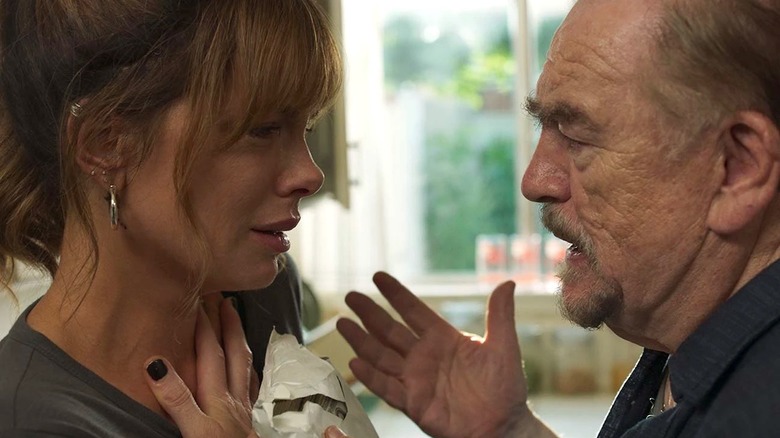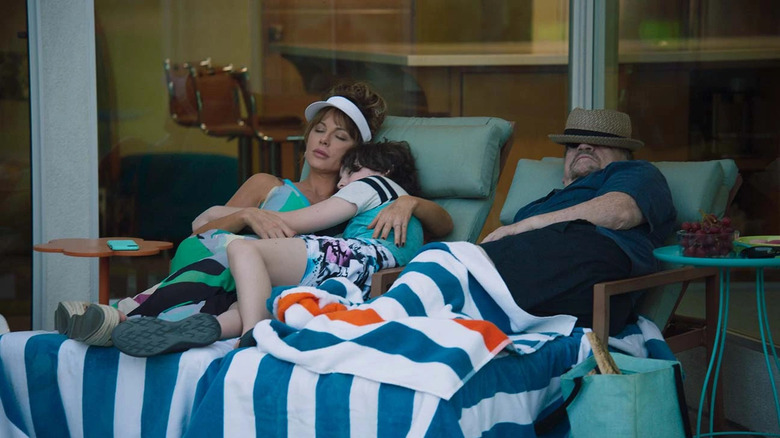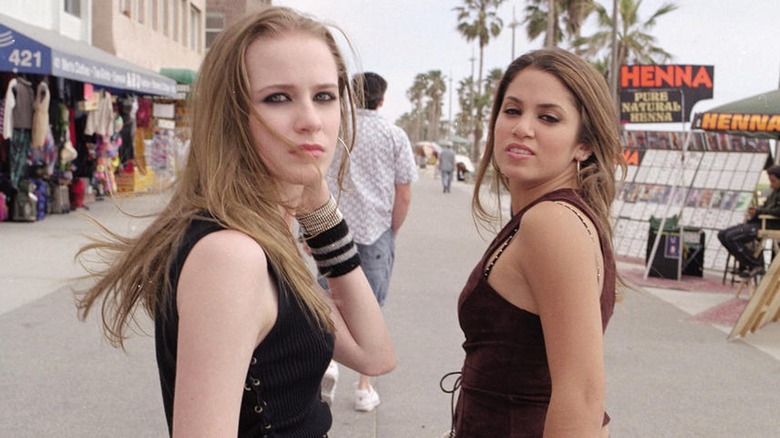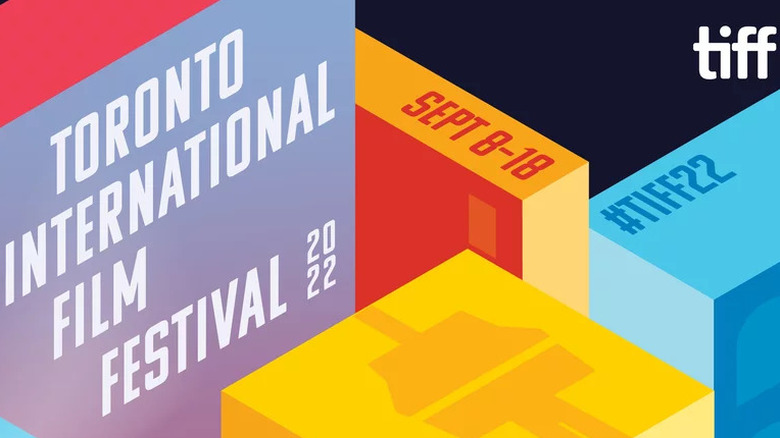With Prisoner's Daughter, Catherine Hardwicke Is Still Making Gritty Films About Independent Women [Exclusive Interview]
Hearing Catherine Hardwicke's name may make you think of the 2000s. Back when only one woman had ever won an Academy Award for Best Director and only two or three had ever been nominated, Hardwicke's output of independent, idiosyncratic films put her in a rare category: female directors with household names. The Texas-born writer/director rose to notoriety in 2003 with "Thirteen," a ferocious, verite account of life on the bleeding edge of Los Angeles co-written by a then unknown Nikki Reed, who herself was only thirteen. After 2005's excellent follow-up "Lords of Dogtown," a slinky portrait of the surf and skateboarding culture in 1970s Venice (L.A., not Italy), Hardwicke rocketed to superstardom with the first installment in the "Twilight" franchise.
Hardwicke has spoken about how painful it was that so little changed for her after "Twilight," a film virtually every producer warned her would go down in flames at the box office, but on which she grossed an astonishing $393 million worldwide over a $37 million budget. She was never invited back to direct a sequel, and no woman was ever hired to launch any of the YA franchises "Twilight" kicked off, from "The Hunger Games" to "Divergent."
When I sat down with Hardwicke at the Toronto International Film Festival to discuss her powerful new film "Prisoner's Daughter," she spoke to the ongoing difficulty of getting another type of film off the ground, what she described as the "intimate family drama." "Prisoner's Daughter" really is a rare film in the studio space — it isn't genre, it didn't have a big budget, it's based on an original screenplay, and focuses on a woman's life and relationships. In the film, hard-working single mom Maxine (Kate Beckinsale) must juggle two jobs, her epileptic son (Christopher Convery), volatile, deadbeat ex (Tyson Ritter), and out of the blue, the return of her once negligent, criminal father, Max (Brian Cox), who's been given compassionate release from prison due to a case of advanced cancer.
Come hell or high water and through critical scorn and indifference, Hardwicke has been directing sincere, female-driven dramas like "Prisoner's Daughter" ever since "Twilight" swooped her up and threw her back down where she was originally standing. Sometimes she's achieved release for a film like this by going the TV movie route ("The Lost Boys"), other times she's taken advantage of emerging platforms (the Quibi original "Don't Look Deeper"). In my conversation with Hardwicke, we discuss the new film, the state of the industry, and her strategies for survival in a system bent on ignoring everyday people's stories.
'I personally knocked on the door of about 50 houses in Vegas'
Congratulations on the film's big premiere. How did it go?
It was really fun. It was in the Roy Thompson Hall. It's just a beautiful experience for a filmmaker to see your movie on a big screen in such a beautiful environment, with a crowd. They all seemed to be really leaning in and engaged with the film, laughing at different little nuances and things.
I went to a press screening and you could hear people sniffling toward the end ... it is always impressive when you can make the press cry.
There [were] two or three parts where I think people just seemed dumbstruck.
Before we go on I have to say, I don't know if you get this all the time, and I hope it doesn't horrify you, but I always say that Thirteen raised me.
[Laughs] Nobody's ever said that!
In 2003 I was 12, I'm from Los Angeles, but discovering that film when I was going through that phase in my life was really huge.
Wow. That's so awesome actually. Well, I'm glad that wasn't your life at thirteen ...
It shocked me actually to find out that you're from Texas, because the depiction of L.A. in "Thirteen" is so rich and so real, and then "Prisoner's Daughter" is set in Vegas.
I thought it would be so fun to do the underside, or the backside of Vegas that you don't usually see. So we were just going into those neighborhoods, you know into that boxing gym where you see the backside of the billboard ... you really get a sense of the faded glamor. Maxine used to be on the stage, but now she's working backstage, cleaning the pantyhose and tidying the towels. It's a different side to the place that made it very interesting.
Your films are often so attentive to working people's lives. All the disruptions, the manic pace, making do on kind of Macgyvered-together things. Kate's character in the film is like that, she works two jobs ...
And even when she graduates to work in the laundry facility that actually cleans, you know, everything in town. That just blew my mind, going to those places. All the sheets, all the towels by the pool. Of course, somebody has to clean all of it. It's all the behind-the-scenes, upstairs, downstairs. It's kept out of sight from the paying customers. That was really kind of fascinating.
To get those details right, does that start within the script or is it a rhythm you have to work out while shooting?
It was kind of baked into the script. And then the house, the house she and Ezra (Christopher Convery) live in, it is really a central character and totally speaks to that theme. And that house was not easy to find. I personally knocked on the door of about 50 houses in Vegas that still looked old enough from the outside so that Max could have believably bought it. The one you see in the film had a level of grunge and detail that was believable for me. If she couldn't even afford to buy medicine for her kid, she definitely hadn't had that house painted in a long time. I wanted you to be able to feel that it was the home that she grew up in. Actually, there's this scene where the camera zooms on a burn on the rug, a cigarette burn, there's a flashback. That was really there. I did not put that in.
'We have to make movies for less money, that's really the answer'
On the note of Kate Beckinsale, her performance is probably my favorite of TIFF so far. She's so alive and so reactive. Especially in her eyes, I swear there was a film of glassy tears on her eyes throughout almost the whole film. Did she come to set with that energy? Did you guys do some exercises together? How did you get that performance out of her?
Well, I give her all the credit. But she does say that it was the house in a weird way, the house that we picked, the circumstances that we were in, the fact that it was 115 degrees some days ... We were almost like living those characters in a weird way. Everything that she wore was like a $10 t-shirt, just the right income level for that character. I think all the details added up to feeling like you were there. But Kate was incredible. She was prepared every day, very focused. She did this beautiful movie before ours that she had a small part in called "Farming." I saw her in that and I was like, "Oh my God, she's amazing. She can do so much more than the action films."
You can't take her eyes off her, she's so manic, ready to react at any moment, which makes so much sense for the character because she has to balance so much.
Yes. And look at the ex-husband, this volatile guy that shows up at her work and causes scenes, and then her kid has epilepsy, so at any moment she has to be thinking, "Is he starting to have a seizure? Oh, I don't have enough cash. Second job is starting up, I can't screw this up," and on and on.
This film, it's a human drama, it's focused on relationships, on family and love, there's no flashy concept or commentary, the main character is a woman. This might just be my perception, but it feels like, at least in the studio space, these types of movies are disappearing. You go back to the '90s, the early 2000s, and it was every other movie. It was Meg Ryan and Julia Roberts and Nicole Kidman, these expensive movies with textured scripts that did well at the box office. And now they seem fewer and further between — do you see that on your side of the industry?
Absolutely. I was just talking about this with some people. Studio movies have really become only franchise, tentpole things, big IP. This is not going to be coming from a big IP, this kind of personal family drama, intimate family drama, where you feel like you're in the house with the characters, which was my intention on "Thirteen." You feel like you're just in there with these people, living with them. So, how are these kinds of movies going to get made in the future? Indie financing. Awesome things like the Toronto Film Festival showcasing them. The most important thing is that we have to keep trying to make these films. Kate said, even last night, she tries to balance out a big, fun action film with something personal, like this.
Are you finding it more difficult to make these movies? To get producers and financiers interested in them?
Well, for example, after I did "Thirteen," I kind of wanted to keep doing movies like that. I found it very difficult. I always found it very difficult to get this kind of movie made. I have had multiple other projects that I could just not get to happen. On this one, I think when Kate and Brian came on, we were able to scrape up the budget, which wasn't a big budget. Kate is sleeping under my own bedspread, for example, in the movie. I didn't even tell them that. There's paintings from my house that are on the wall.
It's pretty bare bones, but that makes it ... it's like "Thirteen." That makes it really come from your heart. So we have to make movies for less money, that's really the answer. If you can make it for a minimal amount of money, maybe you can get it back.
So you've seen the budgets for these kind of films shrink over time.
Oh, my God. Oh, yeah. It's wild.
And it's counterintuitive, because you're Catherine Hardwicke! You're established, you've grossed well over budget on a ton of your films, people see them. You would think it would be the opposite, that it would get easier and easier.
It's the same even with stars. Another big star came to me with a passion project recently and we couldn't get the money, because it was more a character piece. People are just ... they want the superheroes, they want all that crazy stuff. I like that too, but we've got to be able to make personal films.
'I'd trade my whole career just for that one moment'
Going back to Thirteen, that film was born out of your personal relationship with Nikki Reed, who was just a regular girl at the time. I don't know if it would even be possible, but have you thought about saying, "Screw the studios, screw stars, I'm going to get some non-professionals and shoot an indie on no budget?"
Oh yeah. I mean, I've done a lot of little shorts and little workshop and things like that. So, I do love to work small. But of course, everything requires some amount of resources. You've got to have the camera, you've got to pay for permits, you've got to have insurance if somebody get injured, or something happens. Even the small projects are more complicated than you'd think. And people will say, 'But you directed that! How can you struggle to get things off the ground? We all do. But anyway, I hear you. I feel that spirit for sure.
You've depicted strong friendships, and complicated friendships in so many films, and here you're taking on intergenerational family relationships. Was it more difficult getting into the father-daughter dynamic?
But even before I answer that, I want to just say that I did love the friendship between Hank (Ernie Hudson) and Max. There is a strong friendship in the film, and it's theirs. I love that kind of warmth and history that those two have. But family relationships ... I mean, of course, my dad was an amazing father, but he had his flaws too. We all have these family traumas, dramas, aches, pains. How can they heal? How can you still love this person who's flawed? Beautiful, but flawed. I think that is something that is personal to all of us. We're all a part of families, we all have fathers and mothers, and it's rarely ever easy. You just use what you have felt in your own life and feel your way through the film.
Maxine is so resistant to letting Max back in to her life, so when she finally does, it feels like this tremendous release.
She is so tough on him. That was one thing that Mark [Bacci], the writer, did really well. She's so tough. "Stay in your room. I don't want to see you. I refuse to share a room with you." And I mean, she's hard on him. "You got to pay me for the toilet paper you use." It's funny, when I looked at those lines when I first read the script, I almost added a line when they first bring Max home, I wanted someone to ask him, "Are you sure you want to stay?"
But it's beautiful when it finally breaks down. It's like in the beautiful movie "Monster's Ball," the character is so hardcore and so tough that when he finally breaks down you're so relieved. So, Kate being that tough on him, I think it has the audience practically begging, "Please! Go easy on him!" And then it's such a relief. When she finally says, "Maybe you should do the treatment. We could use more time together." When the family goes swimming together.
That was such a beautiful scene.
I just love that scene. That Max had one free afternoon was just critical. And Brian Cox is just outrageous! Playing with a little duck, racing Maxine and Ezra, flipping his grandson around in the pool. Honestly, I'd trade my whole career just for that one moment.



